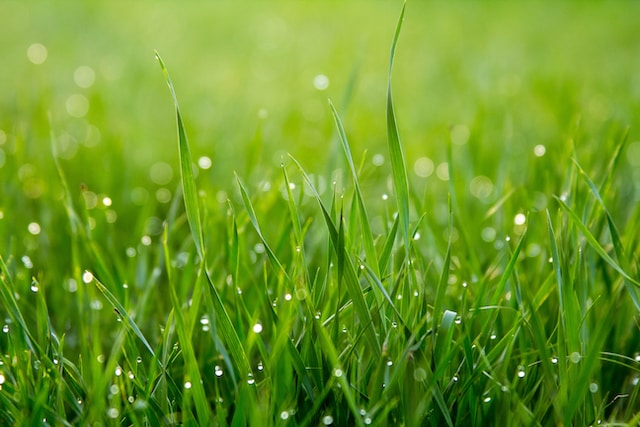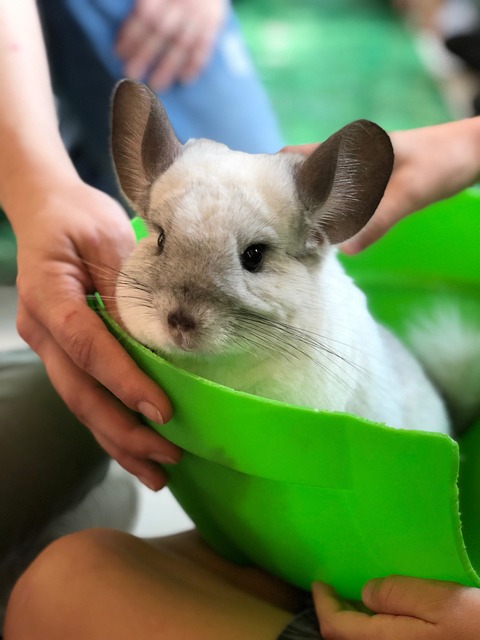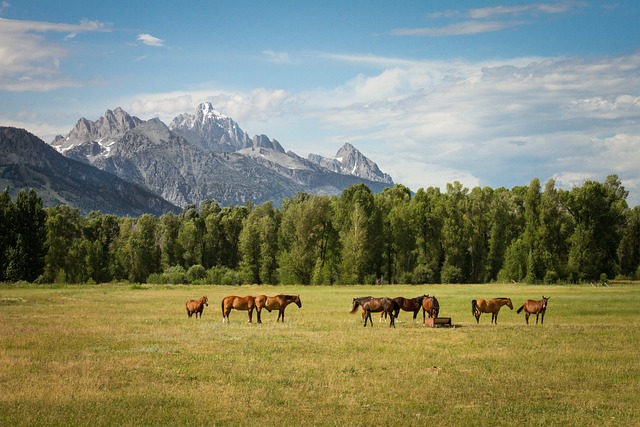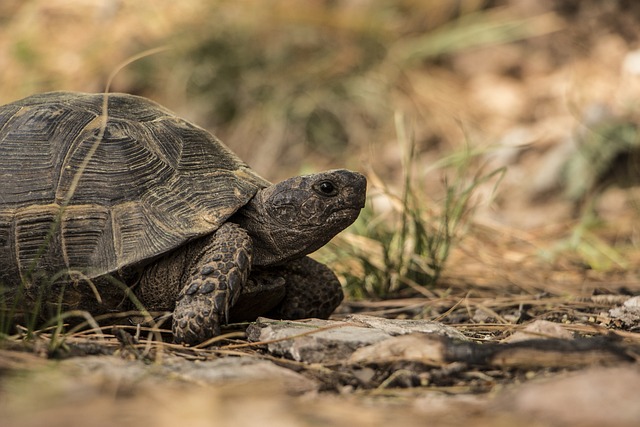Can Chinchillas Eat Grass?
If you recently fed your chinchilla grass or caught them nibbling away on grass, don’t panic. Chinchillas can eat grass, and it’s actually a major food source for chinchillas in the wild.
While chinchillas are omnivores, they are primarily herbivores, and will happily munch away on fresh grass if it’s in front of them. However, in general, it’s much better to keep your pet chinchilla on a consistent diet of hay.
Read on to learn about grass nutritional value, exactly how and when to feed your pet chinchilla grass, and safe feeding tips.
- Can Chinchillas Eat Grass?
- Grass Nutritional Information:
- Is Grass Good for Chinchillas?
- How often should you give your chinchilla grass?
- Are there potential risks associated with feeding chinchillas grass?
- What Other Types of Grass Can Chinchillas Eat?
- Recap: Can Chinchillas Eat Grass?
- Frequently Asked Questions (FAQ):
Grass Nutritional Information:
Grass is a plant, so why don’t humans and many other animals eat it regularly? Doctors recommend we eat lots of plants and vegetables, so why exactly isn’t it a part of most of our diets?

In actuality, grass (especially wild grass) does have nutrients – it has vitamins A, C, and some B vitamins, as well as several minerals. However, it also contains something called lignin, and a lot of it. Humans can process lignin in small qualities, but grass contains so much that it usually passes through without giving any nutrients. Meanwhile, other animals like cows, with their famed multiple stomachs, are able to eat grass and thrive on it.
Is Grass Good for Chinchillas?
Although many animals can thrive on diets consisting largely of grass (see a full list of animals that eat grass here), for many animals including hamsters and humans, grass isn’t a viable source of sustenance.
So why can chinchillas eat grass? This is just the genetics of the chinchilla’s unique and elaborate digestive system. They’re able to eat large quantities of grass and extract nutrients from it, while some other animals can not.
Additionally, it’s good for chinchilla’s teeth to graze on grass – the texture helps prevent overgrowing of their teeth due to the microscopic spikes on grass.
How often should you give your chinchilla grass?
You can feed your pet rabbit grass everyday. For many pet owners, growing fresh grass isn’t a viable method of feeding their pet, so they feed them wild grass from outside. If you do this, be sure to:
- Introduce it slowly, especially if they’re used to dry grass or hay
- Wash it thoroughly
- Do not feed it to them if it’s been exposed to insecticides, pesticides, or has mold
- Similarly, do not feed it to them if there are dogs or cats who have feed on the grass
- Monitor them closely after they’ve had grass for the first few times
In general, you should opt to feed them hay (which is just dried grass), because you never know if fresh grass has been contaminated and it’s difficult to constantly monitor grass quality. It’s much safer and simpler to find a hay that you like and to feed that to your chinchilla consistently.
Are there potential risks associated with feeding chinchillas grass?
Yes. If the grass or plants outside have been treated with chemical pesticides, or are contaminated with other animal’s feces, your chinchilla could get poisoned. Some signs to watch out for:
- Fever (above 100.5 to 103 degrees Fahrenheit)
- Seizures
- Lack of appetite
- Listless and lack of energy
If any of these symptoms occur after they’ve consumed wild grass, take your chinchilla to the vet immediately. They could have eaten a toxic amount of insecticides or something similarly harmful to their little bodies.
Even if they have a mild reaction, cease giving them fresh grass at once and give them a diet of healthy dry grass. This is Amazon’s top-rated chinchilla food mix and will have all the nutrients your little pet needs.
What Other Types of Grass Can Chinchillas Eat?
If you’re looking to make a little salad for your chinchilla to eat, here is a list of common plants that chinchillas enjoy:
- Meadow grass (very nutritious for chinchillas)
- Wheatgrass (very nutritious for chinchillas)
- Orchard Grass
- Oat Hay
- Timothy Hay
Make sure to introduce new foods slowly to test out how it affects their digestion. Some plants might be too high in calcium and cause them to develop painful bladder stones, which will need a vet’s attention.
Recap: Can Chinchillas Eat Grass?
- Yes, chinchillas can eat grass!
- Make sure to wash your grass thoroughly!
- Do not give them grass if it’s been near herbicides or has mold.
- Keep your chinchilla primarily on a diet of hay. Grass should be more of a side dish rather than the main course
Frequently Asked Questions (FAQ):
What foods can chinchillas eat?
Chinchillas eat a varied diet but the staple should be hay. On top of that, they should eat greens like sweet potato, kale, dried plants and herbs. As small snacks, they can also eat dried fruits, nuts, and berries.
Do people eat chinchillas?
Chinchillas are endangered animals and should not be eaten. However, people have eaten chinchillas for thousands of years and it’s considered a delicacy in some parts of the world.
Can chinchillas eat rabbit food?
No, it’s best to avoid feeding your pet chinchilla rabbit food. There is likely to be at least some ingredients in rabbit food that will cause digestion issues in a chinchilla.
What fruits can chinchillas eat?
Chinchillas can consume almost all fruit and are especially partial to bananas, blueberries, raspberries, strawberries, watermelon, kiwi, grapes, apples, and pears. However, you should avoid feeding them high citrus fruit as this could hurt their stomachs. This includes fruits like cherries and grapefruit. Additionally, avoid high sugar fruits like pineapples, that will spike their blood sugar.
Can chinchillas eat bananas?
Yes! Chinchillas can and do eat bananas and they are good for them. Bananas are packed with fiber and nutrients that help chinchillas thrive.
Can chinchillas eat tomatoes?
No, it’s best not to feed your chinchillas tomatoes as the high acid will likely upset their stomachs.
If you have any questions, feel free to email me!
Related articles:



